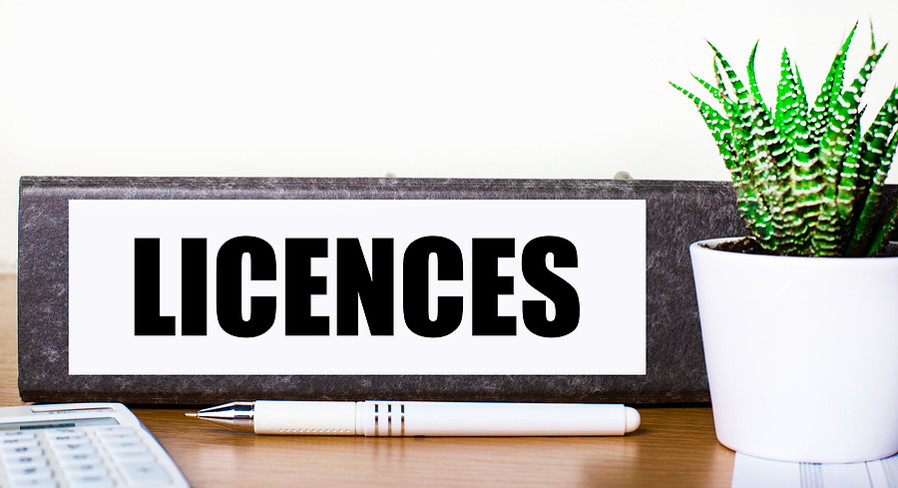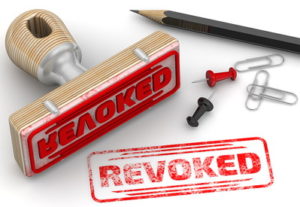 Most people that have a small amount of information about the world of gambling will know that any operator offering such an activity to people based in the United Kingdom have to have a licence from the United Kingdom Gambling Commission in order to operate. What many might not realise is that some companies and organisations have to have a personal licence, which works in a slightly different way and can be issued for various reasons.
Most people that have a small amount of information about the world of gambling will know that any operator offering such an activity to people based in the United Kingdom have to have a licence from the United Kingdom Gambling Commission in order to operate. What many might not realise is that some companies and organisations have to have a personal licence, which works in a slightly different way and can be issued for various reasons.
The UKGC offers three types of licence: operating licence, personal licence and premises licence. The personal licence then comes in two forms itself, with a Personal Management Licence and a Personal Functional Licence being the options. Which one you’ll need will depend on the role that you carry out, with PFLs being required by people that perform a function that can influence the outcome of a gambling scenario.
Personal Licences Explained
 Since the first of September 2007, the United Kingdom Gambling Commission has required those working in the gambling industry to have a licence to operate. The type of licence that is needed depends on the form of gambling that you’re offering, with operating licences required for people that provide facilities for gambling or that manufacture, install, adapt or repair gambling machinery or software.
Since the first of September 2007, the United Kingdom Gambling Commission has required those working in the gambling industry to have a licence to operate. The type of licence that is needed depends on the form of gambling that you’re offering, with operating licences required for people that provide facilities for gambling or that manufacture, install, adapt or repair gambling machinery or software.
If you’re providing the public with gambling facilities in a specific place, rather than remotely, then you’ll need a premises licence. The personal licence comes into play in certain circumstances, with the type of gambling on offer being the dictating factor. Small scale operators might be exempt from obtaining a personal licence, but everyone else will need either a Personal Management Licence of a Personal Functional Licence.
Personal Management Licence
 Let’s look at Personal Management Licences first. These are required by everyone that occupies a specified management office relating to the holder of an operating licence. If you’re responsible for the likes of the overall strategy and delivery of gambling operations for the company. Equally, those in control of financial planning and budgeting, marketing and the development of commercial aspects of the business or regulatory compliance will need a PML.
Let’s look at Personal Management Licences first. These are required by everyone that occupies a specified management office relating to the holder of an operating licence. If you’re responsible for the likes of the overall strategy and delivery of gambling operations for the company. Equally, those in control of financial planning and budgeting, marketing and the development of commercial aspects of the business or regulatory compliance will need a PML.
Even someone that is in charge of gambling-related Information Technology will need to have a Personal Management Licence. It doesn’t matter whether you’re in charge of one of five of these things, you’ll need a PML to operate legally. If the company works in a regional manner, with Area Managers in charge of certain parts of the county, they will need a Personal Management Licence too. The following are the types of job titles that might require a PML:
- Chief Executive Officer
- Managing Director
- Executive Chairman
- Chief Operating Officer
- Operations Director
- Sectoral MD
- Financial Director
- Marketing Director
- Commercial Development Director
- Compliance Director
- IT Director
- Director or Trustee Responsible For Lotteries
Personal Functional Licence
 It’s far to say that Personal Management Licences are far more all-encompassing than a Personal Functional Licence. Anyone that has a role pertaining to the management of a gambling company will need a PML, whilst those that need a PFL are much more limited in scope. The key word in the licence type is ‘function’, given that anything that performs an important function that can have an influence over the outcome of a bet will need one.
It’s far to say that Personal Management Licences are far more all-encompassing than a Personal Functional Licence. Anyone that has a role pertaining to the management of a gambling company will need a PML, whilst those that need a PFL are much more limited in scope. The key word in the licence type is ‘function’, given that anything that performs an important function that can have an influence over the outcome of a bet will need one.
If you have influence over how a gambling related outcome will end up, or you are involved in the receiving or paying of money in relation to gambling then you’ll need to obtain a Personal Functional Licence. Here’s a look a the roles that will almost certain require a PFL:
- Dealer
- Croupier
- Cashier
- Casino Inspector
- Pit Boss
- Gaming Supervisor
- Security Officer
As with the list of job titles associated with a Personal Management Licence, that list is far from exhaustive. Instead, its aim is to give you a sense of the type of people that will need to look into getting a Personal Functional Licence if they have a job working in a casino.
The UKGC’s Part In It All
 The United Kingdom Gambling Commission is the governing body of gambling in the country at the time of writing. When it comes to their role in issuing Personal Licences, they are responsible for issuing the licence to the applicant after ensuring that it is suitable that the are awarded one. More importantly, they’re the ones that will look to ensure that people are carrying out the responsibilities associated with their licence.
The United Kingdom Gambling Commission is the governing body of gambling in the country at the time of writing. When it comes to their role in issuing Personal Licences, they are responsible for issuing the licence to the applicant after ensuring that it is suitable that the are awarded one. More importantly, they’re the ones that will look to ensure that people are carrying out the responsibilities associated with their licence.
The UKGC can review a person’s licence at any moment, usually because they feel as though there has been an issue of non-compliance with the regulations of their licence. Sometimes it might be felt that the licence holder is unsuitable to the role, whilst it’s also possible that the Gambling Commission might simply feel that a review is an appropriate thing to do for some reason or another.
If the UKGC decides to launch a review of a licence, the powers that they have are numerous. If they discover wrong-doing, the Gambling Commission might issue a warning to the licence holder, giving them a chance to ensure that they start complying with the conditions of the licence. Failing that, the Commission might decide to revoke the licence, with a financial penalty and even criminal proceedings possible.
Some Small-Scale Operations May Be Exempt
 Those that operate small-scale gambling establishments may be exempt from applying for a Personal Licence. Of course, that depends entirely on the definition of what is ‘small-scale’, with the general rule of thumb being that you have no more than three ‘qualifying positions’ working at the business, which each of those ‘qualifying positions’ being occupied by a ‘qualified person’. Here’s a list of ‘qualifying positions’:
Those that operate small-scale gambling establishments may be exempt from applying for a Personal Licence. Of course, that depends entirely on the definition of what is ‘small-scale’, with the general rule of thumb being that you have no more than three ‘qualifying positions’ working at the business, which each of those ‘qualifying positions’ being occupied by a ‘qualified person’. Here’s a list of ‘qualifying positions’:
- Management of the licensed activity
- Management of your financial affairs
- Ensuring that you comply with the requirements of the Act
- Marketing the licensed activity
- Management of information technology facilities used in the provision of the licensed activity
- Management of the licensed activity for a particular locality or area in Great Britain in which you have five or more sets of premises for which you hold a Premises Licence
- Management of a single set of casino or bingo licensed premises
A ‘qualified person’ is someone that is named on the operating licence as holding one of the qualified positions or is the subject of an application to vary the licence in order to their name as a person that is holding a qualified person. Companies will lose their exemption on occasions when they have more than three people working in the posts for a period of more than 28 days, or two periods of more than 14 days when they occur within 28 days of each other.
What Happens When It Goes Wrong
 It’s not just local casino operators that have to have personal licences, with even the biggest companies needing to ensure that there is someone working there that can take responsibility for aspects of the business. This was demonstrated in March of 2021, when the Gambling Commission confirmed that action had been taken against those that held Personal Management Licences at Caesars Entertainment.
It’s not just local casino operators that have to have personal licences, with even the biggest companies needing to ensure that there is someone working there that can take responsibility for aspects of the business. This was demonstrated in March of 2021, when the Gambling Commission confirmed that action had been taken against those that held Personal Management Licences at Caesars Entertainment.
In April of 2020, it was announced that Caesars Entertainment UK Limited had to pay a fine of £13 million as a result of ‘systemic failures’ within the business. This was particularly in relation to VIP customers, with an investigation then launched into PML holders owing to concerns that they had failed to take the responsible steps that they should have in relation to the activities that they were licensed for.
The result of the investigation was such that seven of the company’s Personal Management Licences, received a warning about their behaviour, two received Advice To Conduct letters and three surrendered their licences after being told that they were under review. Another surrendered their licence whilst they were subject to an investigation but before they’d been told that their licence was officially being reviewed.
The UKGC also issued an Advice To Conduct letter to a further 18 PML holders, but this was outside of the process of the review. Separate from this, a member of Caesars Entertainment had an altercation with a guest and had their licence revoked as a result. The Commission Executive Director of the UKGC, Richard Watson, had the following to say about the matter:
“All personal licence holders should be aware that they will be held accountable, where appropriate, for the regulatory failings within the operators they manage.”
Obviously this is just one specific example of how a person’s licence can come under review, but if it can happen at a company as big and influential as Caesars Entertainment Limited then it is far to say that it can happen anywhere. Whilst critics of the Gambling Commission believe that it is somewhat toothless, it has demonstrated in the past the seriousness with which it takes its licensing responsibilities.
